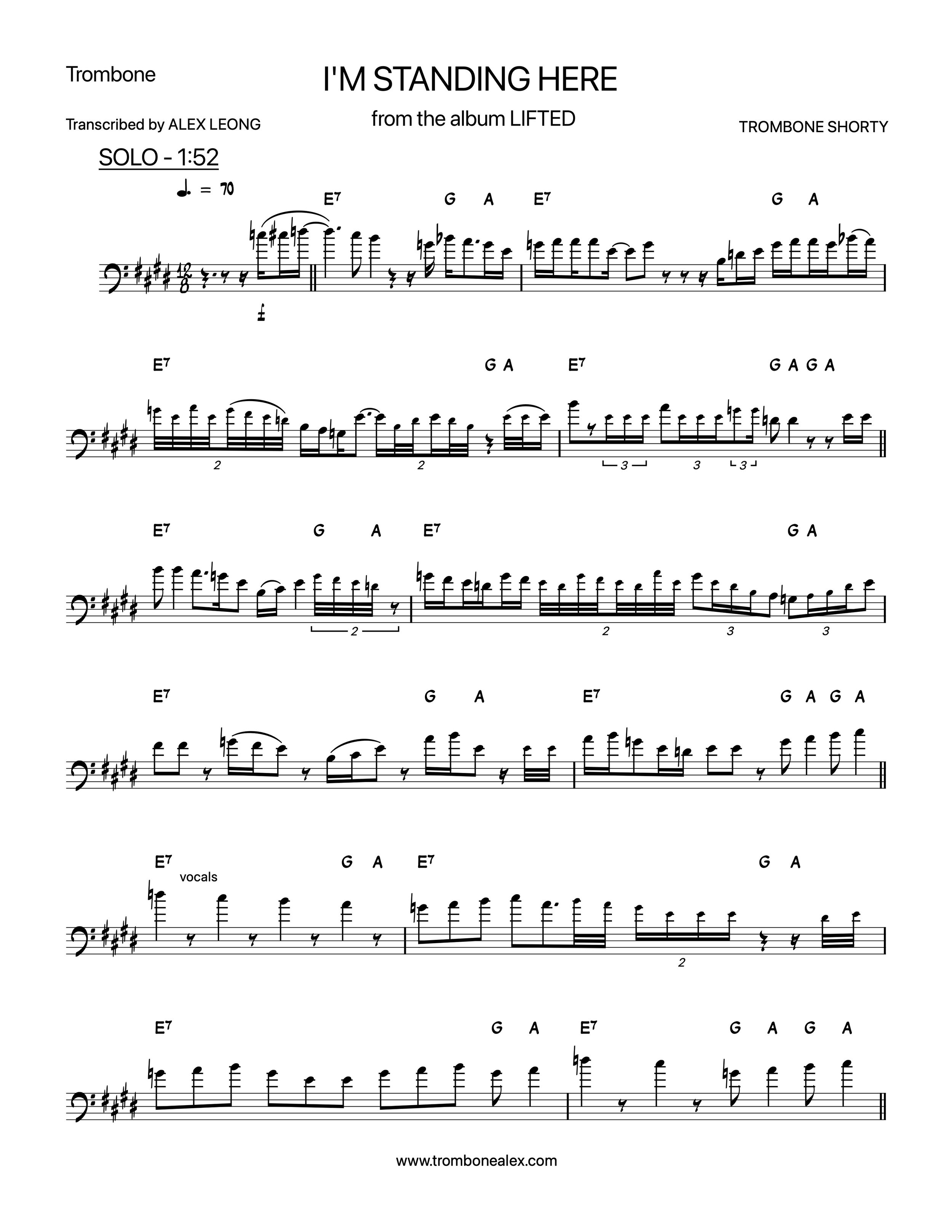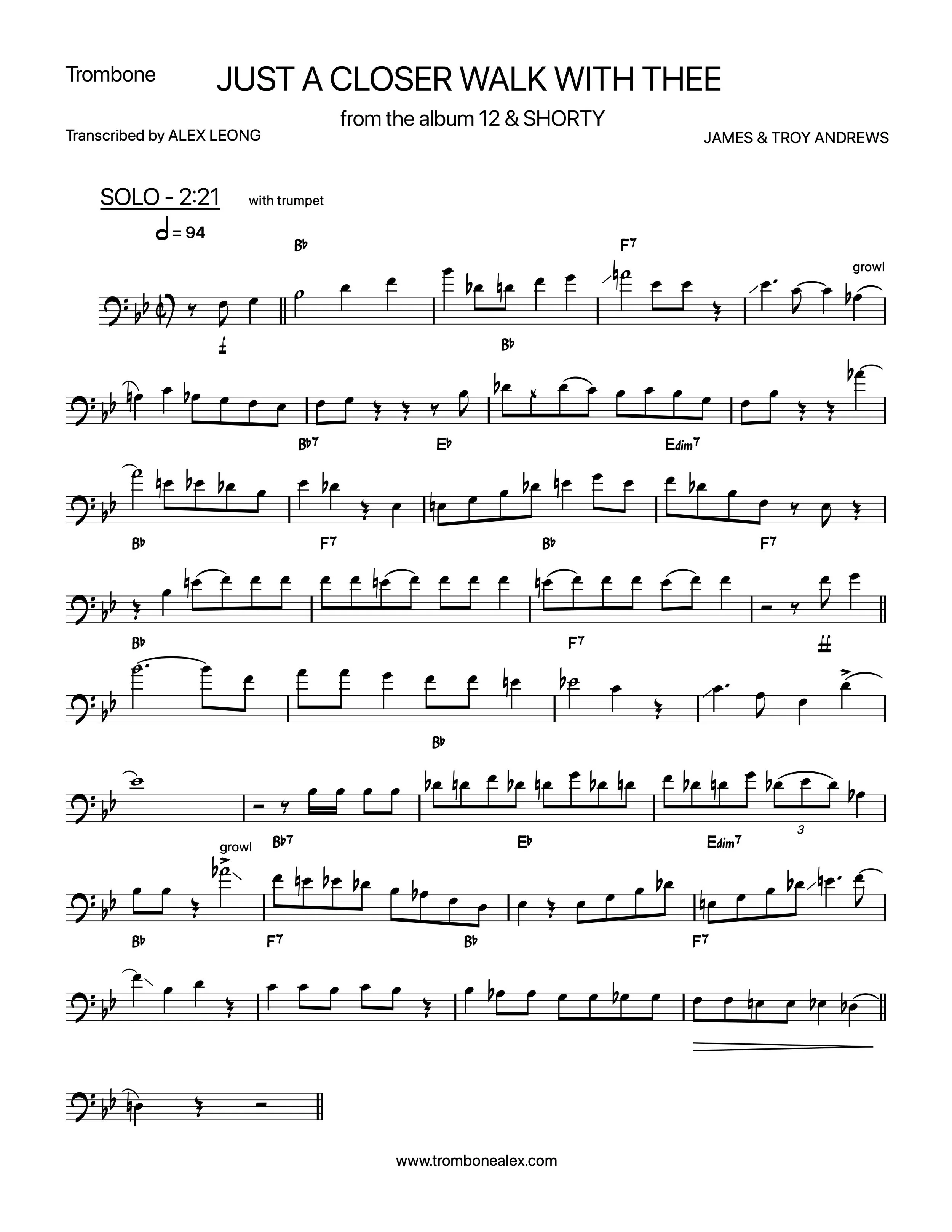In response to criticism of New Orleans trumpeter Al Hirt’s pop success from his 1963 recording of the Allen Toussaint instrumental “Java,” it was believed that Hirt rejected his association with jazz despite an established career with big band and Dixieland music.
Read MoreIn 2017, Trombone Shorty and drummer Stanton Moore both released separate versions of “Here Come The Girls,” the Ernie K-Doe hit song written by Allen Toussaint, and both versions featured a solo from Trombone Shorty, creating a chicken-and-egg scenario for any curious listeners.
Read More“Good Company,” covers a lot of musical ground within its exactly-three-minutes runtime and features a trombone solo that has been reduced to a flashy four bars.
Read MoreIn what might be the most underrated track from the album Lifted, “Might Not Make It Home” captures the sound of Trombone Shorty as a fully-developed artist, free of any genre-defining labels, launched into a stratosphere somewhere between Earth, Wind & Fire and Parliament/Funkadelic. And yet, Trombone Shorty’s musical roots remain firmly planted in New Orleans.
Read MoreTrombone Shorty’s fifth major-label album, Lifted, was officially released on the opening day of the 2022 New Orleans Jazz & Heritage Festival. His performance brought the two-weekend festival to a close in the early evening of Mothers Day - a fitting tribute to the album’s cover photo of his late mother, Lois Nelson Andrews, holding up the shorty musician at a second-line parade.
Read MoreModern brass bands like New Breed, Da Truth, Big 6, and Young Fellaz have thrived by utilizing social media to share New Orleans traditions with everybody in the world.
Read MoreThe homegrown talent of the Austin, Texas blues scene, guitarist Gary Clark Jr. established himself as a twenty-first century bluesman at the infamous Antone’s on Sixth Street, but it was his appearance at the 2010 Crossroads Guitar Festival where the rest of the world learned his name.
Read MoreTrombone Shorty’s new album, Lifted, is the most accurate document of the sound of his band, Orleans Avenue, since its 2005 debut album on Treme Records.
Read MoreBecause of its mainstream popularity, some songwriting circles have referred to a chord progression that utilizes a dominant-Three chord as the “Georgia” changes, despite its common occurrence in other early jazz standards heard throughout New Orleans, like “All of Me” and “Basin Street Blues.”
Read MoreIt was Chicago gospel composer Kenneth Morris who first published an arrangement in 1940 based on variations sung by railroad porters that he had transcribed during his travels. Along with choir director Sallie Martin, the Martin & Morris Music Company became one of the oldest publishers of American music, and whose catalogue has since been donated to the Chicago Public Library.
Read MoreThe influence of New York City’s bustling jazz scene in the 1940s, using Broadway tunes to create bebop, led to the appearance of “Paper Moon” in the Tennessee Williams Pulitzer Prize-winning play A Streetcar Named Desire, a story that takes place in New Orleans.
Read MoreGiven the tune’s simple chord changes and singable melody, “Lady Be Good” is often overlooked by post-modern and doctoral musicians in debt to their previous lives. But in such a timeless city as New Orleans, music does not get erased - modern jazz is a living preservation of early traditions and spirits that prolong legacy rather than recycle invention.
Read MoreAccording to trumpeter Raymond Williams’ biography, he was given the nickname “Dr. Rackle” by his mentor Jackie McLean as a title for his group of “Sound Griots,” or musical sages, and has been an integral part of shaping and arranging the Hot 8 sound of the streets into a Grammy nominated work of art, earning himself the second nickname, “The Fine Tuner.”
Read More


















